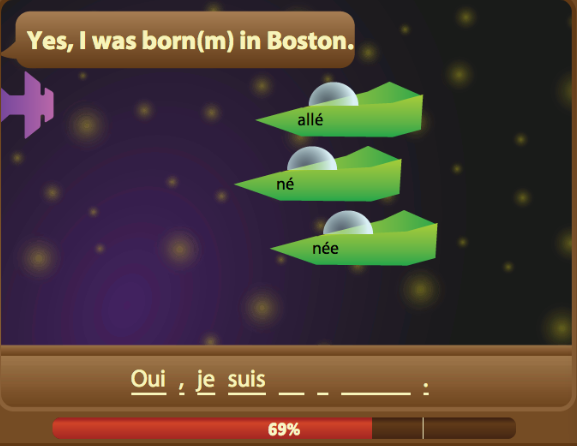Are Language Games Just for Kids?
 Are language games just for kids? The short answer is "no" and there are plenty of reasons.
Are language games just for kids? The short answer is "no" and there are plenty of reasons.
Kids love to play, in fact most, if not all their learning in the early years occurs during play. So it's not surprising that educational games - especially those on tablets and smart phones - are pouring into the marketplace.
These games combine playing with targeted learning and include educational topics from geography, math, spelling, science, to native and foreign languages. Much research is being done about how children learn with structured games. A good resource for that is the Mind/Shift blog on www.kqed.org about Games and Video Games.
Kids and Language Games
There are numerous audio, video, and other “toy based” games and apps, which children play in their native language. With these, they enhance word recognition, pronunciation, spelling, and writing, etc.
And they play native or even foreign language games not because they want to improve their communication with their parents, siblings, and peers, but simply because such games are fun.
Why Language Games Work for Kids
Kids' language games teach basic vocabulary, often with funny pictures, cute sound effects, and "rewards" for getting it right. They feature droll or adorable characters, catchy music, bright colors, and require the young player to swipe, click, or move a word or image in order to progress.
Adults and Brain Games
Games and play are not just for kids, though. Adults also learn well with games. A well-established segment is the field of Brain Training. Lumosity has surged to becoming the dominant online presence, but there are plenty of other brain games available as well.
A few years ago Nintendo DS developed a series of Brain Age Games. There's also research being done in the area of cognitive improvement, especially related to the effect of video games on the brains of older adults. (see our blog post on language learning and memory)
Adults and Foreign Language Games
In 2007 Nintendo DS started a series of language games (My Spanish Coach, My Japanese Coach, My French Coach, etc.) But these did not seem to catch on.
Around the same time, Craig Gibson launched Digital Dialects, a website with simple, animated games for 30+ languages. Mindsnacks with its language learning games appeared in 2010 and added gamification (rewards, badges, etc.) and humor to its games.
When in 2012, Duolingo, then a gamified "crowd-sourced text-translation platform" (Wikipedia) took the Internet by storm, it became clear that language learning games for adults are here to stay.
Why Language Games Work for Adults
In contrast to children, adults typically do have a specific plan or need for the language they are learning (be it for work, travel, friendship, personal satisfaction, etc.). Moreover, adults not only have to develop the discipline and learning habits to keep going in the midst of their many other commitments and time constraints, but they also have to find ways to stay motivated.
Games can therefore be an effective addition to any language learning program, especially because they are interactive and fun.
Because of their interactive nature, games are very versatile. They can easily combine humor and serious learning. (Think of the Duolingo Owl, or the Rhinos of the Mindsnacks games.)
Plus, games are nonlinear and dynamic, features which help in the acquisition of language as a complex tool for communication. When learners make a mistake or need to figure out a grammar point, they can easily replay a segment and get immediate feedback.
Games can also interweave a story line - which provides context - with vocabulary and grammar practice, while keeping the learner interactively engaged (a main feature of Gamesforlanguage).
Moreover, by involving multiple senses - visual, auditory, and touch - games stimulate association and sharpen memory.
Last but not least, games are relaxing because they are fun and entertaining.
As language games for adults become more numerous and go mainstream, they join the "learning revolution," which Markus Witte (Founder and CEO of the language learning site Babbel) talks about in a recent blog post: The Learning Revolution: It’s Not About Education in Wired Magazine.
In his words: "A new trend is initiated by a whole new breed of learning technology start-ups that set out to make learning easier for everybody."
Why not jump on this trend and play a few language games?!
